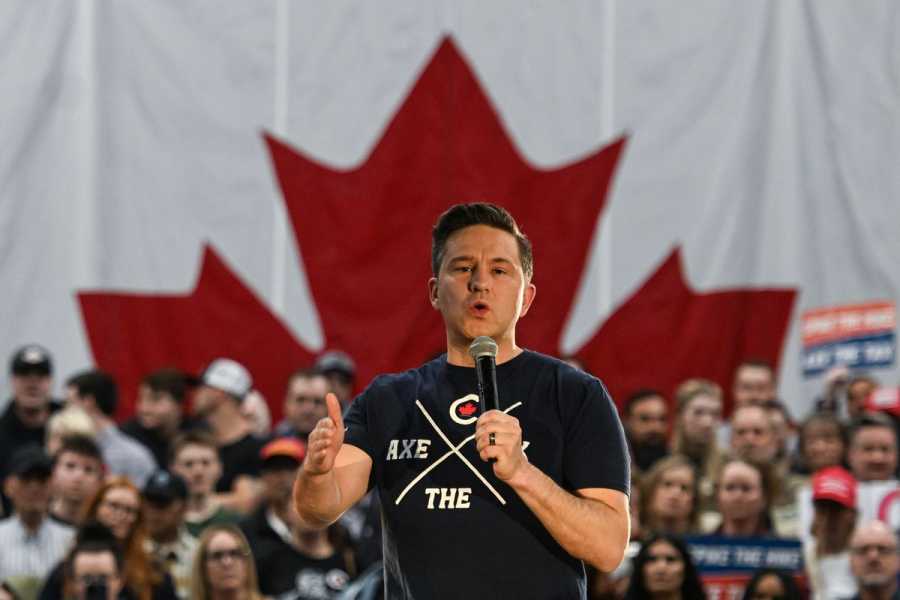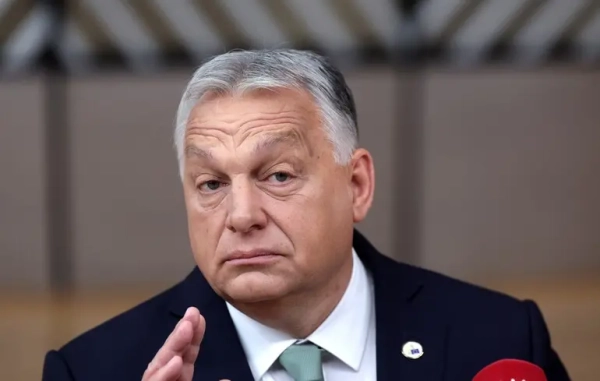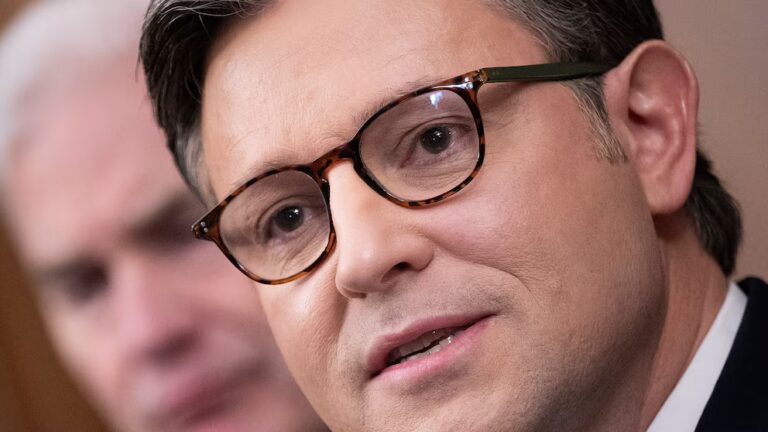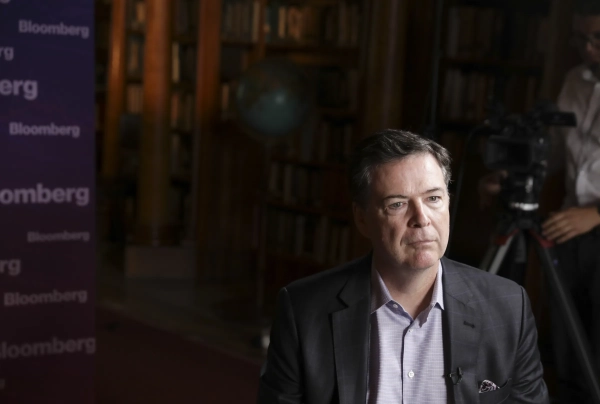The rise of an unusually tame right-wing populist reveals how Canadian democracy stays strong — and why the world should take notes from Ottawa.

Pierre Poilievre speaks at a protest against a Federal Carbon Tax increase on March 27, 2024. Artur Widak/NurPhoto/Getty Images Zack Beauchamp is a senior correspondent at Vox, where he covers ideology and challenges to democracy, both at home and abroad. Before coming to Vox in 2014, he edited TP Ideas, a section of Think Progress devoted to the ideas shaping our political world.
“Are we a country that looks out for each other … or do you go down a path of amplifying anger, division and fear?”
That’s how Canadian Prime Minister Justin Trudeau described the stakes in his country’s upcoming election in an interview with Vox’s Today, Explained this week — outlining the 2025 contest as no ordinary election but a referendum on the very soul of Canada.
This existential framing is an unsubtle shot at Trudeau’s rival, Conservative Party leader Pierre Poilievre, a populist firebrand who is currently outpolling the prime minister by a wide margin. Poilievre rose to party leadership as a champion of the extremist trucker convoy that occupied Ottawa in January 2022, and since then has regularly pandered to far-right voters. He has proposed defunding the CBC (Canada’s widely respected public broadcaster) and repeatedly promoted a conspiracy theory in which Trudeau is in league with the World Economic Forum.
There’s a reason that Trudeau and many others have directly linked Poilievre to Trump: His political style practically invites it. But how accurate is the comparison? Is Canada really poised to be the next Western country to fall to the far-right populist global wave?
The answer, as best as I can tell, is mixed.
It’s true that, by Canadian standards, Poilievre is an especially hard-nosed figure, one far more willing to use extreme rhetoric and attack political opponents in harsh terms.
But on policy substance, he’s actually considerably more moderate than Trump or European radicals. Mostly eschewing the demagogic focus on culture and immigration that defines the new global far right, Poilievre is primarily concerned with classic conservative themes of limited government. His biggest campaign promises at present aren’t slashing immigration rates or cracking down on crime, but building more housing and repealing Canada’s carbon tax.
Poilievre is basically just a conventional Canadian conservative who wraps up his elite-friendly agenda in anti-elite language aimed at working-class voters. He’s the kind of politician that some Republicans wish Donald Trump was: a tame populist.
Understanding Poilievre isn’t just of interest to Canadians. There are reasons that his brand of populism is less virulent than what’s cropped up in many other Atlantic democracies — ones that hold important lessons for safeguarding democracy around the world.
Why Pierre Poilievre doesn’t fit the far-right script
The University of Georgia’s Cas Mudde, one of the leading scholars of the European right, has developed what is (to my mind) the most useful definition of radical right politics today. In his account, this party family — factions like Hungary’s Fidesz, France’s National Rally, and the US GOP — share three essential qualities.
First, they are nativist; they strongly oppose immigration and multiculturalism. Second, they are willing to use aggressive, even authoritarian measures to deal with social disorder like undocumented migration and crime. Finally, they are populist, meaning that they define politics as a struggle between a virtuous people and a corrupt elite.
Poilievre is certainly a populist. A right-wing operative and politician since he was a teenager, he rocketed to the top of the Conservative Party hierarchy after emerging as the most vocal champion of the 2022 Ottawa occupation. The uprising, which began against pandemic restrictions but swiftly became a broader far-right movement, was quite unpopular nationally. But inside the Conservative Party, there was enough support for its “pro-freedom” message that Poilievre rode his pro-convoy stance to victory in the party’s subsequent leadership election.

A protester makes his stand as police remove the “Freedom Convoy” from Ottawa on February 18, 2022. Steve Russell/Toronto Star/Getty Images
Since then, his populism has focused relentlessly on attacking the media, “globalists,” and (above all) Trudeau. Casting the fight between his Conservatives and Trudeau’s Liberals as the “have-nots” versus the “have-yachts,” he has argued that the prime minister embodies a debased Ottawa establishment out of touch with the needs and values of ordinary Canadians.
In a recent speech, Poilievre cast Trudeau as an “elitist” leader gunning for Canada’s freedoms. “If he had read Nineteen Eighty-Four, he would have thought it was an instruction manual,” Poilievre argued.
Somewhat ironically, Poilievre also believes Canada’s criminal justice system should be harsher. Blaming Trudeau for a recent rise in car thefts, Poilievre has argued for a reimposition of mandatory minimum sentences and other tough-on-crime policies. This means there’s at least a case that he also fits the second prong of Mudde’s definition of radical right politics.
But on the first prong, nativism, Poilievre clearly diverges from Trump and the European far right. He has publicly insisted that “the Conservative party is pro-immigration,” and he has made appealing directly to immigrants a central part of his campaign strategy.
“It doesn’t matter if your name is Poilievre or Patel, Martin or Mohamed,” he said at a Diwali event in October 2022. “If you’re prepared to work hard, contribute, follow the rules, raise your family, you can achieve your dreams in this country.”
While he has called for a decrease in current levels of immigration, he has refused to specify a target for said cuts. His most recent position is that immigration levels should be linked to housing supply — the more houses and apartments built, the more immigrants should be let in. And since he is solidly pro-construction, that doesn’t necessarily imply that immigration needs to be cut radically.
This a far cry from Trump’s claim that Mexico is sending rapists and drug dealers, or Dutch radical Geert Wilders’ (recently withdrawn) proposal to ban mosques in the Netherlands. Poilievre may assail the media and champion right-wing hooliganism on the streets of Ottawa, but he’s unwilling to attack immigrants and ethnic minorities in the way that others in the global far right do.
Rather, Poilievre’s politics seem more shaped by Canada’s longstanding populist tradition than anything new or global.
Arising primarily in Western provinces (Manitoba, Saskatchewan, and Poilievre’s native Alberta), Canadian “prairie populism” historically draws strength from the notion that the federal government cares more about the population centers in Quebec and Ontario than the rest of the country. Prairie populism, which comes in left- and right-wing varieties, focuses far more on regional and economic issues than the cultural obsessions of the modern far right.
“We have had a long history of populism — particularly in the prairie provinces, the Western provinces — going back to the 1920s and 30s,” says Keith Banting, a professor at Queen’s University in Ontario. “Populism draws less extensively on anti-immigrant sentiment in Canada than it does almost anywhere else.”
Indeed, Poilievre’s biggest focus is cost-of-living issues — blaming ordinary people’s economic pain on high taxes and big government. His signature proposals are repealing Trudeau’s carbon tax, cutting spending to fight inflation, and removing restrictions on housing construction.
You can think whatever you want about the merits of these various views (personally, I’m against the first two and for the third), but they’re basically what you would expect from any Conservative Party leader in his position: the historic party of Canada’s wealthy calling for lowering taxes and shrinking government. While the global far right is unbendingly hostile to immigration and flexible on size-of-government questions, Poilievre is essentially the reverse.
Poilievre’s “plutocratic populism”
While Poilievre is a very Canadian figure, fitting solidly into the right-wing prairie populist tradition, his politics also have a lot in common with a concept developed for the United States: political scientists Jacob Hacker and Paul Pierson’s “plutocratic populism.”
In their book Let Them Eat Tweets, Hacker and Pierson argue that the Republican Party uses culture war as a vehicle to attract popular support for a party that primarily caters to the interests of the rich. This strategy of “exploiting white identity to defend wealth inequality” allowed Trump’s GOP to attract downscale, non-college-educated voters without abandoning its core commitment to tax cuts and deregulation.
But in the United States, the populists ate the plutocrats. Trump’s anti-democratic instability and economic heterodoxy on issues like trade led some GOP billionaires, like the Koch family, to try and unseat him in the 2024 primary. They failed miserably and now are slinking back. In the Republican Party, MAGA is calling the shots.
Poilievre, by contrast, keeps his populism within plutocrat-acceptable bounds. His rhetorical gestures toward the working class are paired with solidly pro-rich policy views and a distinct absence of attacks on the democratic system itself.
In 2013, he claimed to be “the first federal politician to make a dedicated push” toward imposing US-style right-to-work laws in Canada. He has endorsed tax cuts for the rich and cuts to social spending. His trade policy is far more free-market than Trump’s. There are no signs that he would challenge the legitimacy of Canadian elections, let alone stage a January 6-style insurrection.
None of this should be surprising. Poilievre is a longtime creature of the Conservative Party, a cabinet minister in former Prime Minister Stephen Harper’s government. He is not an anti-establishment figure like Trump but rather a member of the establishment. There’s no reason to believe his leadership would seriously diverge from the Conservative Party’s historic policy priorities to any major degree.
He is the kind of “populist” that people like the Kochs wish Trump was.
What the world can learn from Canada’s tame populism
All that being said, Poilievre’s populist positioning is not harmless.
There are genuine costs to villainizing your political rivals, mainstreaming conspiracy theories, and corroding public trust in the media. In the long run, this rhetoric can corrode the bonds of citizenship and raise polarization to dangerous levels. His proposal to defund the CBC’s English-language broadcasts is concerning; if implemented, it would be quite damaging to Canada’s civic health. Perhaps for this reason, many members of his own party oppose the idea.
Yet in comparison to places with significant far-right problems —like the United States or even Germany — Canada’s democracy is still in relatively safe waters. Poilievre’s aggressive rhetoric is worrying, but it’s hardly a system-threatening danger akin to Trump’s election denialism.
This speaks, more than anything else, to the durability of what’s been termed “Canadian exceptionalism:” an unusual level of resistance to far-right populism when compared to its peers in the Atlantic world.
Generally speaking, Canadian exceptionalism seems to stem from the country’s historically high levels of public support for immigration and multiculturalism. Unerringly, right-wing extremist parties around the world draw the core of their strength from majority-group voters concerned about ethnic and religious minorities. While such people certainly exist in Canada, they are a smaller percentage of the overall population than in peer democracies and, accordingly, less politically influential.
This exceptionalism is rooted in Canada’s distinct national identity as one that elevates the ideas of tolerance and diversity into defining and distinctive national values. In fact, Canadians who express higher levels of patriotism tend to be more supportive of immigration (in the United States, the relationship unsurprisingly goes the other way).

Canadians Maryam and Nore Kasmeih wait for Syrian refugees at the airport on December 10, 2015. Steve Russell/Toronto Star/Getty Images
Between Poilievre’s rise to power and a recent poll showing concern about immigration driving up housing costs, some have worried that this may be ending. But a closer look suggests that these are actually testaments to the enduring power of Canadian exceptionalism.
The Canadian Conservative Party has remained in bounds on issues of immigration and identity because going harder would be politically counterproductive (as the public disapproval of the trucker protest showed). Even amid the current concern about rising home prices, a majority of Canadians believe that immigration levels should be kept the same or increased.
If Poilievre is a tame populist, the people responsible for taming him were not the Canadian rich but rather the Canadian majority. His populism is primarily rhetorical — rather than system-threatening — because the Canadian system for limiting extremism is still basically intact.
The lesson for the rest of the world is that Canada is onto something. Several decades of official multiculturalism have helped it build up antibodies to the infection eating away at democracies as different as the United States, Hungary, India, and Israel. Liberals and democrats everywhere should be trying to think about how to build their own variants of this ideology at home.
Realistically, this is a long-term project. Canada’s multiculturalism project began under Trudeau’s father, Pierre, in 1971. It took decades for it to build on itself and become an authentic part of Canadian identity, one strong enough to create barriers to far-right politics. This isn’t something that can be adopted overnight in response to an extremist challenge; in fact, the very existence of that challenge creates a significant barrier to moving in Canada’s direction.
But at the same time, the crisis of global democracy may be the time to get started. Canada’s multiculturalism policy was in large part a response to internal conflict and crisis: violent Quebecois separatism rooted in French-Canadian desire for cultural autonomy. Perhaps the current crisis in global democracies will create a similar incentive to start thinking about long-term policy ambitions in their own countries.
At the very least, the rise of Poilievre should not be seen as a failure of the Canadian model. If anything, his relatively neutered populism should be seen as a testament to its strength
Sourse: vox.com






